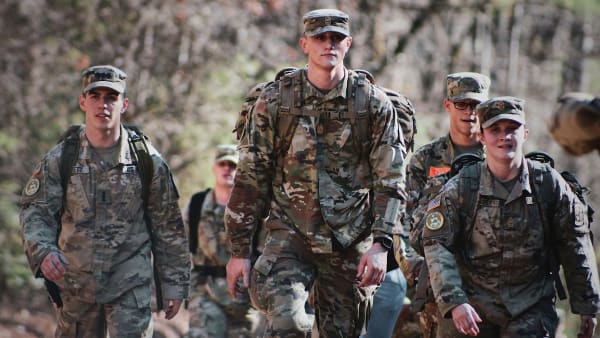The Thread of Learning: Unraveling the Multifaceted Role of Education in Military Career Advancement
One might argue that the military is a unique and vast entity, distinct from almost every other occupation or professional environment. The various processes, roles, and the requisite hierarchy, among other factors, possibly set it a notch or two above in terms of complexity, compared to ordinary careers. Herein, the role of education becomes pivotal and almost indispensable. This article looks at the overlaps between the two seemingly diverse spheres of the military and education and underlines the importance of education roll in shaping a successful military career.
What Constitutes Military Education
Military education is the bedrock on which a soldier nurtures his intellectual, moral, and character growth. It's a multiplex combination of professional and leadership training, academic knowledge, and technical proficiency. It spans a broad spectrum, such as formal schooling, on-the-job training, and enhancement of technical skills. Let's delve a little deeper to understand each one:
Professional and Leadership Training: Military training begins with instilling basic military etiquette, essential survival skills, and techniques critical for combat. It also extends to developing leadership abilities, strategic decision-making skills, and fostering team dynamics.
Academic Knowledge: This component encompasses traditional academic subjects like history, mathematics, and science. It also involves the study of military analytics, strategy, law, and geopolitics.
Technical Proficiency: This segment focuses on honing the technical skills necessary for modern warfare including operations of machinery, cyber defense tactics, and intelligence analysis.
The Value and Impact of Education
Interestingly, the educational skilling within the military does not merely stop at improving warfare and defense tactics. On a broader spectrum, it’s coupled with career enhancement, professional growth, bolstered confidence, commanded respect, and most crucially – potential saving lives. Here's how:
Career Advancement: Metaphorically, education can be the leverage for climbing ranks in the military. Enhanced knowledge and skill-set directly influence a military professional's competency, and consequently promotion opportunities.
Professional Growth: Continuous learning fuels the comprehensive development of an individual. Besides driving growth in their current roles and responsibilities, it prepares them for higher responsibilities and specializations.
Boosted Confidence: The newfound knowledge and skills instill an increased sense of self-esteem and assurance. This confidence can prove essential during decision-making in high-stake situations.
Respect & Recognition: Education lends credibility and respect. A well-educated soldier is viewed as a resource and is likely to be allocated leadership roles and responsibilities.
Life-saving Skills: The education and training acquired in the military not only make soldiers better at their jobs but also equip them with skills that can prove life-saving on and off the battlefield.
The role of education in a military career, therefore, cannot be underestimated. It is integrally woven into the very fabric of military advancement.
Military Education in the 21st Century
In the backdrop of technological advancements and shifting geo-political contours, the role of military education has never been more profound. The 21st-century soldier needs to be a confluence of a diplomat, humanitarian, warrior, and technologist, all wrapped in one. Hence, holistic education is of paramount importance.
The Grasp of Technology: From the use of drones to cyber warfare, the face of military operations is rapidly changing. The workforce must be educated and trained to handle these modern war-tools.
Changing Nature of Conflicts: Conflicts are no longer restricted to battlefields. From guerilla attacks to cyber threats, hybrid warfare encapsulates a broad spectrum. Well-rounded education is critical in these altering dynamics.
Holistic Leadership: The modern-age military leaders need to have an extensive understanding of not only military strategies but wider topics including politics, culture, and ethics to lead effectively.
Balancing Act: Education and Training
While both education and training are essential for military advancement, striking a balance is critical. Training emphasizes specific skills, adherence to hierarchy, and immediate tasks. Meanwhile, education focuses on cognitive skills, critical thinking, and problem-solving, preparing soldiers for uncertain, unplanned scenarios.
A soldier with only training might be proficient in the task but might falter when faced with unprecedented situations that demand critical thinking. Conversely, a soldier with high education but devoid of practical training might also struggle in actual combat scenarios. Hence, creating a perfect blend is pivotal.
The Way Forward
As the landscape of modern warfare transforms, it is incumbent upon military institutions to adapt and align their educational strategies. They need to build a structure of continuous learning, encourage innovation, and promote an organizational climate that values education. Recasting the education system in this manner would foster a more capable, adaptive, and resilient military force, paving the way for smooth career progression and a well-rounded development of military personnel.
The intertwining of educational advancement and military service is unmistakable. A steadfast commitment to learning brings multi-faceted benefit, shaping well-rounded, versatile soldiers capable of navigating the complex milieu of the modern military landscape. Thus, the role of education in a military career inevitably remains significant and powerful, with a distinctive impact on individual growth and overall military effectiveness.




